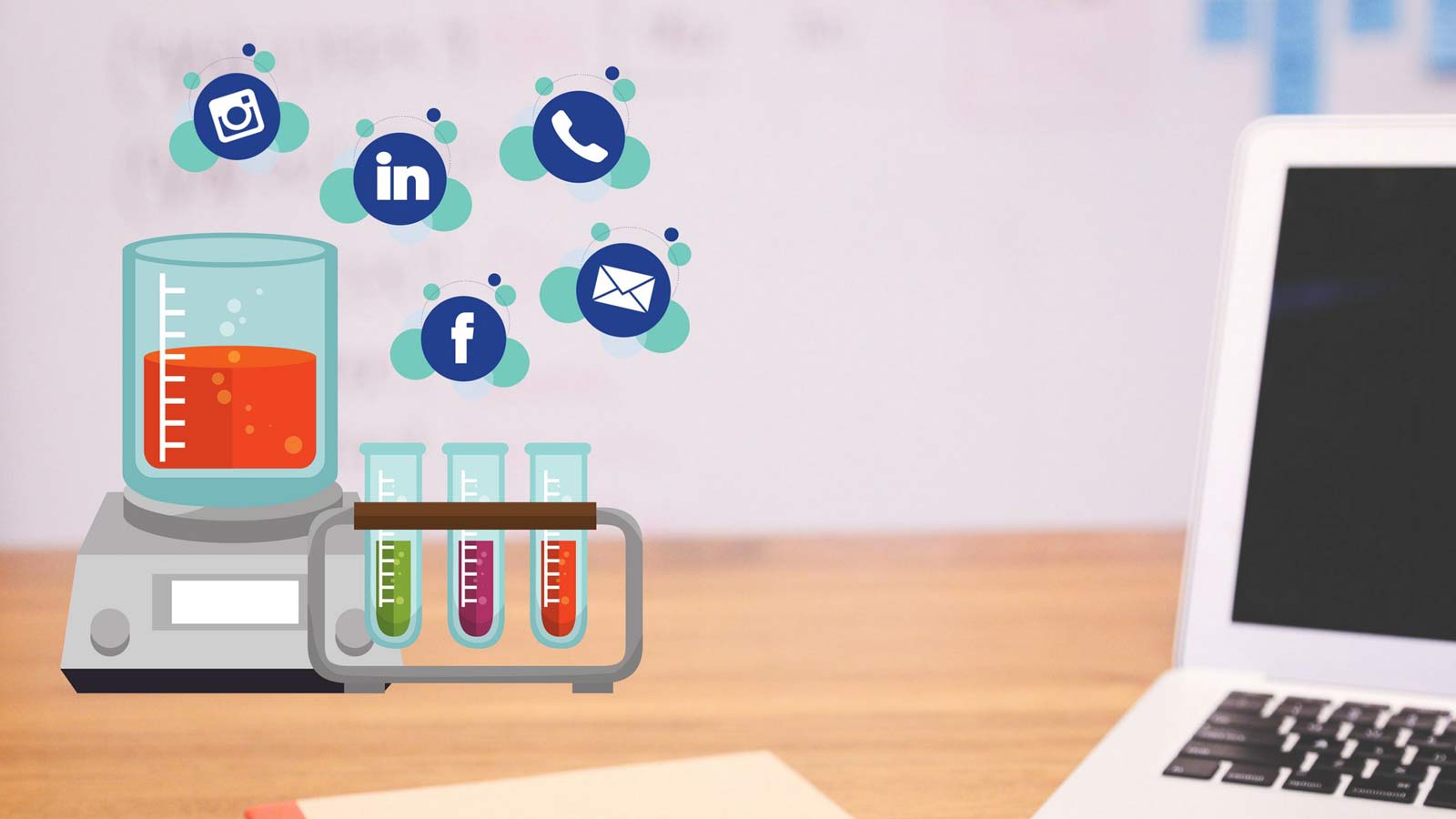In 5th grade you learned about the scientific method—ask a question, do background research, conduct an experiment, and support or reject a hypothesis. Your career may not have you testing how long it takes a saltine cracker to dissolve today, but hopefully those 5th grade science lessons remind you about the importance of using data to make informed decisions about advertising online and here’s why.
In 5th grade you learned about the scientific method—ask a question, do background research, conduct an experiment, and support or reject a hypothesis. Your career may not have you testing how long it takes a saltine cracker to dissolve today, but hopefully those 5th grade science lessons remind you about the importance of using data to make informed decisions about advertising online and here’s why.
Why Your Advertising Online Needs to Be Data-Driven
It may be common sense to make marketing decisions using consumer insight data, but let’s look at why.
Data Driven Digital Marketing Yields Positive Differentiation
Marketing data tells us that the customer experience will probably overtake price and product as the key brand differentiator.
Why does this matter?
It matters because unless you’re collecting and analyzing data, you may not have the information you need today to make better decisions tomorrow. Scraping the web for quantitative metrics like tweets, likes, and shares don’t tell you about the one-on-one experience customers have with your brand, and that’s the experience that will matter. Collecting data on the customer experience will help you differentiate your brand positively in the years to come, rising above and beyond competitors—and it can help you nurture customer loyalty now.
Data Driven Marketing Gets Results
The possession of first party data is a game changer. First party data provides some of the richest insights about consumer behavior.
Case in point?
Nearly two out of three marketers contest that first party data leads to the highest increase in a customer’s lifetime value, and 82% plan to use first party data more in the future to make marketing decisions.
What Does Data Driven Digital Marketing Look Like?
A lot of times companies and their marketing teams will feel exhausted by the sheer volume of data they collect because they’re not sure what do with all of it.
At this point, there are two choices—try to analyze and interpret all the data in-house and create multiple marketing agendas based on metrics, or get help.
Those who turn to digital advertising companies often feel more confident in their marketing agenda because of the skill of their ad agency. Ad agencies have the experience and expertise to make sense of consumer data, using it to create custom marketing plans that cover a broad range of ad platforms from traditional media to social media.
But, if you decide to go it alone, here’s what data driven digital marketing looks like along with metrics you’ll want to pay attention to.
Data Driven Marketing: An Overview of The “Scientific Approach”
Data driven marketing breaks down into 5 different steps.
First, business goals are defined. For example, increase repeat sales by 10% is a business goal. Business goals will inform your digital marketing goals.
Second, define your digital marketing goal. Your marketing goal is “how” you will achieve your business goal. For example, to increase repeat sales by 10% we will increase customer engagement.
Third, define how you will measure success (i.e. establish KPIs). How will you tell if your marketing plan was successful? In this example, you might use click-through rates to assess the number of repeat customers reading your content and clicking through to view additional products.
Fourth, assess how you’re currently building customer engagement and identify areas where you can improve. Often, this means integrating various aspects of your marketing.
Fifth, monitor and adjust. Keep track of your data driven marketing agenda and adjust if you veer off course from your goals.
A Few Popular and Useful Metrics
Sometimes choosing metrics can be a point of hang-up. Don’t let that be the case. Here are three powerful metrics that work well for digital marketing.
Page Views
The higher the better. If you have several views, you know people are finding you. This can be a good indicator of success when employing content marketing on social media platforms, especially when it comes to the increasingly popular platform, Pinterest. It can also help you gauge the success of organic content marketing.
Inbound links
Inbound links mean other people are linking to your site. If you have a lot of high-quality, high-power sites linking to you, then you’re digital marketing is working. Your domain authority will rise, and you’ll become more visible online.
Open rates and conversions
If you’re running an email campaign or directing people to specific landing pages with your online advertising, then you’ll want to know your open rate and conversion rate.
Of course, there are handfuls upon handfuls of metrics you could use. The best ones to use are the ones that make the most sense for your organization based on your business and marketing goals.
Additional Ways to Use Consumer Data
Data driven marketing is more than using data to create the right kind of social media/influencer/traditional advertising campaign. Businesses will of course use consumer data to inform such marketing decisions. But, data should also be used for concept testing and product development.
Concept Testing and Product Development
Use data to assess the potential profitability and success of new ideas and products. This single step can save thousands of dollars and hours from being wasted by clueing you into the receptiveness of a given audience.
Content Directions
Content marketing is an extremely powerful form of marketing, but only if your audience finds value in your content. Collecting and analyzing consumer data can tell you if your audience will be receptive to the ways in which your brand is expanding.
And, it’s not just big businesses that do this. Entrepreneurs and small businesses need to assess the profitability of content for any new direction their business takes as it evolves.
Getting Help
Making sense of data and using that data to inform your marketing agenda can be daunting, and sometimes it’s hard to get your market research, sales, and marketing team all on the same page. If you need a hand, consider reaching out to digital advertising companies. They’re well-versed in the importance of data driven marketing and they’ll comfortably handle your data and your marketing.
For a free consultation, contact fishbat digital marketing company at 855-347-4228.




